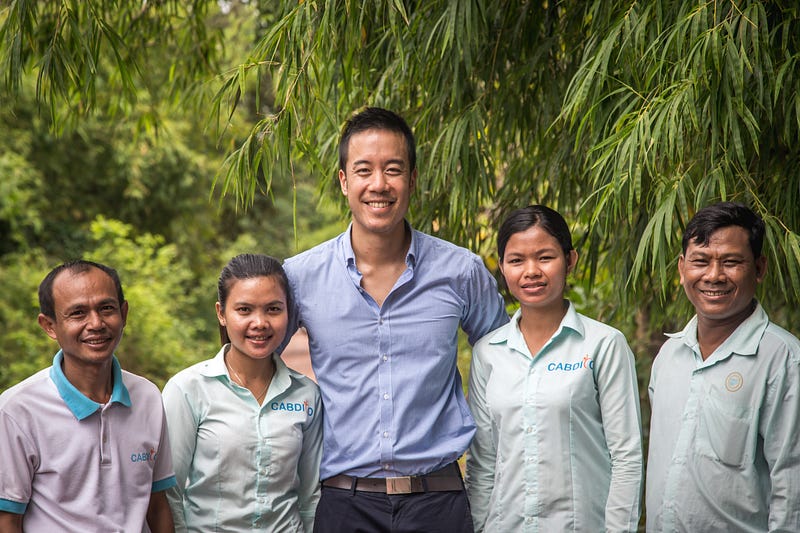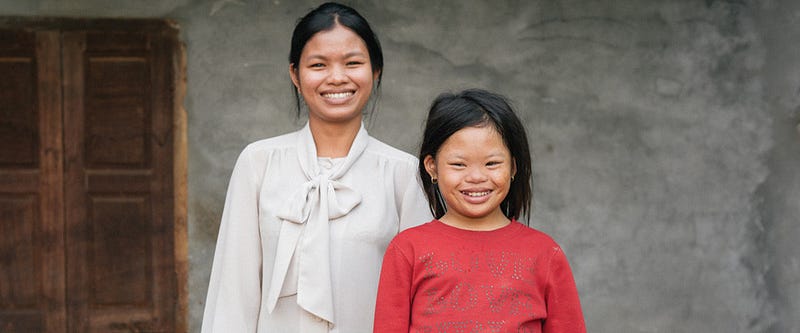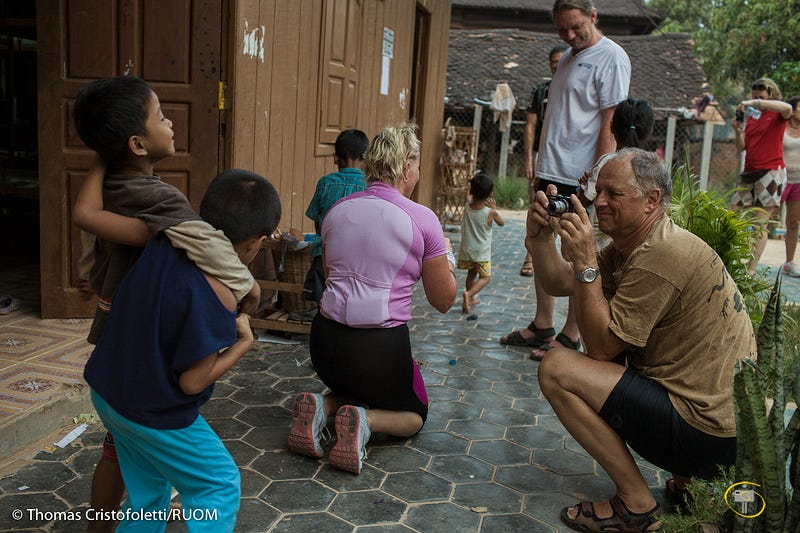5 lessons from 5 years working in Cambodia

In 2012, I arrived in Cambodia after a year working in China. At the time, I understood close to nothing about the country and how it operates. Now, more than five years later, I still maintain that I understand close to nothing.
My experience in Cambodia has been the most fulfilling time of my life. In 2013, I started OIC Cambodia, an organisation to establish speech therapy as a profession, in a country with not one Cambodian university trained speech therapist. While I had the skills to analyse a gap and start something, you need deep local knowledge to implement a solution — that’s why I’m stepping back from the leadership role after four years.
I studied International Development in Australia prior to coming to Cambodia. Of course, theory and practice are two completely different things. But my time in Cambodia has busted some preconceived ideas about development work. Here’s what I’ve learnt in five years.
1) There are some remarkable things happening at breakneck speed
In terms of day to day life, the biggest change from 2012 to now has been the increase in traffic. What was rush hour traffic in 2012, that’s now Sunday morning 11am traffic. The number of cars has increased exponentially.
There’s several climbing gyms, ice skating rinks and a 4DX cinema. Phnom Penh is evolving into Bangkok. One would imagine as this happens, inequity is growing more and more.
There’s also been huge success stories in many areas of development. There was just one malaria death in 2016, down from nearly 400 a decade ago. The number of landmine victims has halved from 2012 to 2016. Similar falls in the number of HIV positive cases have occurred.
There’s no doubt that concentrated efforts from donors, NGOs and government have improved the lives of many.

2) Yet some people are being left behind
In my first year in Cambodia, I talked to hundreds of people working in the disability, education and health sectors. Foreigners or Khmer, working for UNICEF or working in the provinces with a grassroots organisation, one consistent message came through.
“The biggest gap in terms of basic services for children in disability, education or health, is the lack of speech therapy.”
It wasn’t until I had the opportunity to research this further that I worked out just how big a gap it was. An estimated over one in 25 people needed speech therapy, that’s over 600,000 people.
Hundreds and thousands of people were unable to communicate, facing barriers to go to school or get jobs. An equal number were at risk of dying because of swallowing difficulties. Whereas speech therapists would help this population communicate and prevent death in other countries, there was (and still is) not one Cambodian university graduated speech therapist in country.
The concentrated efforts and resulting success had completely bypassed a huge proportion of the population. Was anyone listening?
With half a billion dollars in aid money coming in every year, resources were not always going where they were needed.
3) We have an opportunity to educate others on meaningful work in countries like Cambodia
As someone who has studied and worked in developing countries, I have some areas of knowledge that others don’t. Sure, there’s much about Cambodia I don’t know. But, to paraphrase Confucius, I need to know the difference between what I know and what I don’t know.
This presents me with a unique opportunity to educate people — mothers and fathers, lawyers and doctors, Australians and Singaporeans — on what constitutes good development work.
And yet, there are still streams of well intentioned and energetic people coming into Cambodia to do work that is at best, mildly effective, and at worse, harmful. People who are voluntarily building houses that could otherwise be built by local Cambodian people. Volunteers working in orphanages and perpetuating a model that is outdated and can be detrimental to children.
We can choose one of two paths here. To give people what they want to do, which may not be worthwhile, or to educate them on what is worth doing.
The former is easy and fast, the latter is difficult but more worthwhile.
4) The nature of development work in Cambodia is changing
When I first arrived in Cambodia, the idea that tourists could wander into an orphanage with only good intentions and no child protection check or experience working with children was fairly acceptable.

Things have changed. With the recent announcement that it could soon become a crime to for Australians to visit orphanages in countries, we’re starting to see the messages around effective versus ineffective, and beneficial versus harmful, filter through.
Organisations like Fred Hollows Foundation have gone from give a man a fish models, to teach a man to fish models, and even further than that. They now use a model that I’ve heard them describe as “it’s complicated”, working with the government and health sector to provide long term solutions.
Splash, an organisation based out of Seattle, has a strategic exit planned in Cambodia in 2019, in which time it hopes to become a fully localized, self-sustaining social enterprise.
Organisations, donors and governments, are waking up to the fact that fly in, fly out missions cannot go on forever. Things are changing for the better.
5) There’s plenty of local leaders to solve Cambodia’s problems
At a recent gathering to farewell the outgoing leader of OIC Cambodia, myself, and welcome the new Executive Director, Chenda Net, we were fortunate enough to have the chair of our board, His Royal Highness, Vic Sisowath, give a short speech. He explained why he felt aligned with OIC Cambodia. Part of it was that he felt that as Cambodian people, “we need to do more”.
I agree with this. I would also add, as foreigners, we need to give them the space to do more.
There are still very few international organisations and companies with local Cambodian leadership and management. There’s myriad reasons for this, of which many are historical and attitudinal. The idea that we need to capacity build, we need to empower, rescue and save. These are all outdated ideas that don’t belong in 2017.
Despite OIC Cambodia being something close to my heart, and the main focus of my life for four years, stepping back was not a difficult decision to make.
It took a very quick assessment of the number of high quality Cambodian leaders, men and women committed to improving their own country and solving problems for themselves.
If our role in development is to improve the country and hand over work to local government and organisations, then the answers to our problems are already here. If we, as visitors to this country, trust in local leadership, the future of Cambodia is truly looking bright.